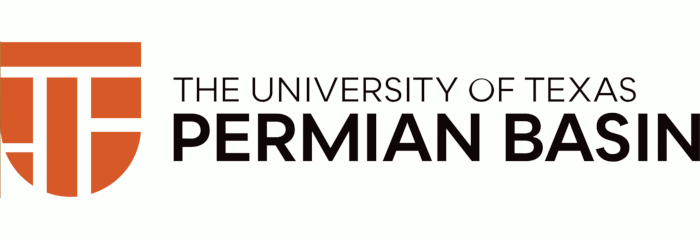2023 Best Online Industrial Engineering Degrees
An education in industrial engineering aims to teach students the skills needed to create and streamline production processes and facilities. Several colleges offer online industrial engineering degrees that provide a convenient way to study this discipline. We've collected a few of the most popular bachelor's degree programs in this field below. Bachelor's graduates may begin working as industrial engineers who assess project costs, environmental impact, and human-technology interaction across a range of industries. However, alumni can also pursue an online master's degree in industrial engineering for an advanced credential.
View our methodology for more details about our list or learn more about OnlineU.
ADVERTISEMENT
Online Industrial Engineering Bachelor's Degrees You May Be Interested In

Liberty University

The University of Texas Permian Basin
Annual Tuition: $7,506
2 Programs (view all)
List Of Accredited Online Industrial Engineering Schools
| School | Online Enrollment | Annual Tuition |
|---|---|---|
| Liberty University | ||
| Old Dominion University | 3,948 | $30,840 |
| East Carolina University | 3,928 | $23,515 |
| Kennesaw State University | 3,315 | $12,888 |
| University of Alabama at Birmingham | 2,398 | $20,400 |
| Lamar University | 2,222 | $18,622 |
| Eastern Kentucky University | 2,187 | $19,948 |
| The University of Texas Permian Basin | 1,827 | $7,506 |
| Tarleton State University | 1,700 | $17,621 |
| University of Southern Mississippi | 1,665 | $10,896 |
| Southern Illinois University - Carbondale | 1,534 | $29,360 |
| PennWest California | 1,141 | $15,726 |
| Mississippi State University | 872 | $23,950 |
| Trine University Online | 271 | $9,576 |
Liberty University
- Annual Tuition: $11,700
- Locations: Lynchburg (VA)
- Accreditation: SACS COC
Liberty University (LU) is a large, private university that focuses on "training champions for Christ." LU’s online Bachelor of Science in Industrial Engineering Technology requires 120 credit hours and can be completed in three to four years with a full-time schedule. This program teaches students to design systems and processes that solve engineering problems. Some core courses in this major include Electrical Systems, Facilities Design, Six Sigma, Lean, and Kaizen, two theology classes, and a capstone class. Graduates go on to work as industrial engineers, operations managers, and production planners.
At LU, students use Blackboard to access their coursework, which is fully online and asynchronous. Online students have access to the university library and all student resources.
Old Dominion University
- Annual Tuition: $30,840
- Locations: Norfolk (VA)
- Accreditation: SACS COC
Old Dominion University (ODU) is a public university offering an online Bachelor of Science in Industrial Technology (Occupational and Technical Studies) that requires 120 credits. Generally, full-time students complete this program in around four years. ODU accepts nearly all of its applicants (95%), with just over half of students (58%) obtaining their degrees.
ODU uses Canvas to teach remote students — with some classes taking place in a live setting, while others are available through recorded lectures. This program is, in part, designed around producing industrial engineers by teaching students how to oversee and improve modern technological systems. Required classes explore a range of related topics, such as Materials and Processes Technology, Industrial Materials, and Computer-Aided Drafting. Graduates may explore roles as industrial production managers, industrial engineering technologists, and development managers.
East Carolina University
- Annual Tuition: $23,515
- Locations: Greenville (NC)
- Accreditation: SACS COC
East Carolina University (ECU) is a public university with a Bachelor of Science in Industrial Technology - Industrial Engineering Technology. This is a transfer degree, which means an Associate of Applied Science is a prerequisite. Students can transfer up to 60 of the required 120 credits from an accredited community college. Approximately 88% of students are accepted into ECU, with 67% leaving with degrees in hand.
ECU students use Canvas to deliver their online programs, where courses are completed online and on a flexible schedule. The curriculum instructs students on how to manage and maintain complex technological systems through the use of modern tools, technical problem-solving, and effective communication. Among the required classes are Technology Project Management, Cost and Capital Project Analysis, and Industrial Supervision. Online students who graduate with similar degrees may go on to work as manufacturing technicians, supply chain analysts, and industrial mechanics.
Kennesaw State University
- Annual Tuition: $12,888
- Locations: Kennesaw (GA)
- Accreditation: SACS COC
Kennesaw State University (KSU) is a public university offering an online Bachelor of Science in Industrial Engineering Technology that requires students to complete 127 credit hours. Typically, students finish a degree of this size in around four years while studying on a full-time schedule. There are two concentration options to choose from: (1) Quality Control or (2) Logistics. KSU accepts 83% of its applicants, while 48% reach graduation.
KSU uses the Brightspace software to deliver online coursework. This digital platform allows students to finish their degrees completely online, with the option of attending class synchronously or asynchronously. The core curriculum for the industrial engineering technology program is all about teaching students the best design practices that meet the efficiency standards of the modern-day manufacturing and business industries. Required classes include Human Resources Management for Engineers, Statistical Quality Control, Logistics and Supply Chain Management. Graduates are often well-prepared to improve systems of energy, information, and people. There are a number of logistical roles that they are qualified to work in within the sectors of business, industry, and the government.
University of Alabama at Birmingham
- Annual Tuition: $20,400
- Locations: Birmingham (AL)
- Accreditation: SACS COC
The University of Alabama at Birmingham (UAB) is a public university offering a Bachelor of Science in Industrial Distribution - Engineering requiring 120 credit hours. If studying full-time, students can complete this online degree program in approximately four years. UAB accepts 81% of its applicants, with 56% of students earning their degrees.
At UAB, students use Canvas to access their core online courses, which are taught completely online with no residency requirements. The curriculum for this engineering program explores various aspects of the industry — including technical sales, marketing, operations, and logistics — where students learn the issues that face distributors, customers, and suppliers. Courses are taught in conjunction with UAB's School of Engineering and will include the following: Distribution Management, Analytics in Distribution, and Distribution Operations. Graduates often earn operations and logistics roles in government, healthcare, and business.
Mississippi State University
- Annual Tuition: $23,950
- Locations: Mississippi State (MS)
- Accreditation: SACS COC
Mississippi State University (MSU) is a large, public university that offers an online Bachelor of Science in Industrial Technology requiring 124 credit hours. This program prepares students to work as manufacturing engineers, industrial engineers, and maintenance mechanics, among other careers. There are two concentration options: (1) Industrial Automation and Manufacturing as well as (2) Maintenance Management. Some of the courses are workshops that require four in-person days each semester in order to complete them.
At MSU, students use Blackboard to access their coursework, which is mostly online and synchronous. Online students have access to all university resources and workshops.
Overview of Online Industrial Engineering Degrees
Faculty design industrial engineering (IE) programs to provide a foundation for aspiring industrial engineers through classes, which cover topics such as manufacturing practices, mathematics, physics, logistics, and quality control.
A degree in industrial engineering technology (IET) is similar but focuses more heavily on the technical components and specifications of manufacturing systems. Though the two programs qualify graduates for different jobs, both share some of the same curricula and each program may require an in-person internship.
Engineering and engineering technology bachelor's degrees usually consist of 120-128 credit hours and take four years to complete at a full-time pace.
Some fully online programs feature eight-week courses, allowing students to take more credits per term in order to finish college more quickly. However, students who also work may find it difficult to complete the degree early. These students may want to consider a part-time degree program that may take longer but allows for greater flexibility. Most of these programs feature asynchronous online courses in which students log in to a learning management system at their convenience to watch lectures, submit assignments, and interact with classmates.
Admission Requirements
An IE or IET degree application is similar to any other online college application, as most candidates are required to submit the following:
- Official transcripts from high school or a GED showing a minimum GPA in the range of 2.5-3.0.
- ACT or SAT scores, dependent upon school admissions requirements, though an increasing number of colleges are dropping entrance test requirements
- Letters of recommendation from teachers or guidance counselors
- A personal essay on a given topic
EXPERT TIP
Applicants can improve their prospects by demonstrating a record of extracurricular activities. Colleges often favor well-rounded candidates with experience in math or science clubs or community service. Moreover, the ability to demonstrate leadership in clubs and organizations is something else that colleges and universities like to see.
The Importance of Accreditation
Accreditation signifies that a college offers high-quality education, and it allows students to receive federal financial aid. The attainment of this status means that an independent organization has verified a school's educational standards. Students can find institutional accreditation information on the U.S. Department of Education's website.
Some employers may prefer candidates from ABET-accredited programs, and ABET accreditation is necessary for students who want to eventually earn a license.
Engineering students should also consider programmatic accreditation, which the Accreditation Board for Engineering and Technology (ABET) grants to individual degrees in the engineering field. Some employers may prefer candidates from ABET-accredited programs, and ABET accreditation is necessary for students who want to eventually earn a license. Accordingly, it’s important to understand that ABET does not currently accredit any 100% online programs in industrial engineering. However, ABET does accredit a few online industrial engineering technology programs, including some of the online schools above. Graduating from a program that's not ABET-accredited may negatively affect a student's career. Prospective students can search this database for ABET-accredited programs.
Common Courses in an Industrial Engineering Program
Both IE and IET curricula highlight systems design, materials science, and advanced mathematics to help students understand process improvement. In addition, IE degrees often contain team and project management classes, while IET students typically spend time learning to use technical tools in a lab. Some degree programs offer individual concentrations that students work toward while also fulfilling different elective requirements.
We've listed several common courses below to help prospective students learn what type of courses to expect in IE or IET programs:
Electrical Engineering Fundamentals
Technologists take this course to learn important aspects of electrical power, resistance, and conduction. Professors may discuss alternating and direct currents, electronic components, and mechanical controls for logic circuits. Most courses include a lab component, where students build and test circuits.
Engineering Economics
This class introduces economic principles as they relate to industrial engineering. Enrollees aim to learn about the time value of money, cost-benefit analysis, the effects of taxes on manufacturing projects, and the rate of return.
Human-Machine Systems Engineering
Future engineers and technologists take this course to understand how people interact with industrial technology. Lessons often cover human intellectual and motor performance, systems design, statistical analysis for decision-making, and ideal human work environments. Students typically design data collection processes to test in a lab.
Machine Automation
Students learn the history and current state of automation technology in industrial settings. Faculty may introduce the principles of robotics, process control, sensors and actuators, artificial intelligence, and programmable logic controllers. Students often need to apply lessons from other courses to analyze the cost of automation and its effect on workers.
Quality Assurance
Professors often define "quality" in this course and offer a range of quality assessment and improvement methods in industrial contexts. They may also introduce students to statistical process control, quality cost, Pareto optimization, and sampling reliability.
Interested in learning about similar degrees? Explore online bachelor's degrees in mechanical engineering, systems engineering, and civil engineering.
Funding an Online Industrial Engineering Degree
In general, online students pay lower tuition rates than in-person students because schools can enroll more of them with fewer infrastructure upgrades. However, tuition isn't the only factor students should consider when budgeting for college, as expenses may also include fees, books, and supplies. Fees vary by institution, but distance learners typically pay a technology fee each term. Still, online students typically benefit from significant savings created by not paying for room and board.
Financial aid provides another opportunity for considerable savings. Prospective students should apply for as much aid as possible — especially grants and scholarships that don't require repayment. They start by completing the Free Application for Federal Student Aid (FAFSA), which helps the government understand how much aid they qualify for. States and private scholarship providers often use this same type of information in considering students for scholarships.
To help industrial engineering applicants, we've listed a few private scholarships to keep in mind below:
Incoming first-year students may qualify for this $1,500 award if they enroll in an ABET-accredited engineering program. Applicants must demonstrate a 3.75 high school GPA and extracurricular participation in STEM activities. The application deadline is March 21, 2022.
Through private endowments, NACME awards minority industrial engineering students amounts ranging from $5,000-$15,000 per year. Recipients may renew scholarships for up to five years. Applicants must have a minimum 2.8 GPA to qualify. Application deadlines vary by scholarship program.
Each year, SWE awards a total of more than $1 million in scholarships to engineering students who identify as female. Candidates must be enrolled in an ABET-accredited program on a full-time schedule. Application deadlines vary by academic level.
Careers with an Industrial Engineering Degree
Industrial engineering students can gain skills and knowledge that prove useful in a variety of engineering and technical specializations. Skills include problem-solving, deductive and inductive reasoning, cost-benefit analysis, and project management. Alumni might find themselves working in fields as diverse as manufacturing, aerospace and defense, technology, or government.
Below, we've listed several career opportunities that bachelor's graduates in industrial engineering can pursue. The Bureau of Labor Statistics (BLS) provided the median annual salaries and job growth data. Some of these occupations have more positive growth rates than others, which might be important to consider when applying for jobs.
Industrial Engineers
Industrial engineers aim to improve efficiency while monitoring overall workflow in production settings, such as factories. They use their knowledge of human-machine interaction to design safe, effective systems, often working with an industrial engineering technologist who helps oversee their work. This discipline is sometimes called manufacturing engineering or industrial and systems engineering.
Industrial Engineering Technologists
Industrial engineering technologists partner with industrial engineers to implement solutions to problems with production systems. They oversee a facility's technological and human elements and collect data on workflow, process changes, supply chain pressures, and anything contributing to operations research.
Cost Estimators
Cost estimators calculate expenses for complex projects using data about material prices, available labor, and historical timelines. Manufacturing and heavy industry employers use estimators to plan budgets and help submit bids on contracts. An engineering student may use their knowledge of industrial processes and engineering economics in this role.
Health and Safety Engineers
Health and safety engineers strive to create and maintain safe environments that encourage employees to thrive. They design industrial settings that account for human fallibility to keep everyone safe despite mistakes. These jobs sometimes carry titles, such as ergonomics engineer or human factors engineer.
Management Analysts
Management analysts help employers improve efficiency, much like industrial engineers in a different context. As such, students of industrial engineering might be suited to help businesses, government agencies, or nonprofits cut costs, create sustainable budgets, and improve productivity. Some management analysts work for consulting firms that assign them to clients on a contract basis.
Licensure
Earning a license is optional for many types of engineers. In general, engineers who work on public projects must earn a Professional Engineer (PE) license. While necessary for civil and environmental engineers, industrial or health and safety engineers may not need a PE designation. Licensure may also help engineers who want to become supervisors by adding a new credential to their resume.
Industrial or health and safety engineers may not need a Professional Engineer license unless an employer calls for it.
To earn a PE license, an individual must earn a bachelor's degree from an ABET-accredited college, pass the Fundamentals of Engineering exam, and work for four years under a licensed PE. After this period, they will need to pass the Principles and Practice of Engineering test. Because ABET accreditation is necessary at the beginning of this process, prospective students should carefully consider which programs they apply to.
Is an Online Industrial Engineering Degree Worth It?
Your financial, familial, and work circumstances should help you decide whether to study industrial engineering or industrial engineering technology online. The pros and cons listed below may also be helpful in making your decision:
Potential Benefits
An industrial engineering degree can qualify you for a number of high-paying fields. Of the occupations mentioned above, even the lowest paying occupation features a median annual salary of about $15,000 more than the national median salary for all jobs.
Industrial engineering is a potentially adaptable degree that imparts transferable skills. If you find that straight engineering work isn't what you hoped it would be, you may be able to pivot to cost estimation or management analysis roles in other industries. Industrial engineering students learn how to offer solutions based on data from multiple sources, which is a skill set many employers crave.
Online learning may be more accommodating and provide greater personal flexibility than traditional in-person learning. Most online degree programs let you watch lectures and complete coursework at convenient times as long as you adhere to due dates.
Potential Drawbacks
No online industrial engineering programs are ABET-accredited, and only a few industrial engineering technology programs are ABET-accredited. Because a lack of ABET approval may negatively impact your future employment and licensure, you may decide that attending a traditional campus program is a better investment.
Both industrial engineers and technologists report feeling unsatisfied with their jobs. According to CareerExplorer, employees in both roles report their job satisfaction in the bottom quartile of all careers.
Moreover, the Federal Reserve Bank of New York reports industrial engineering majors to have a relatively high unemployment rate. In 2020, 4.7% of recent graduates in the major were unable to find work.
Bottom Line
Bachelor's degree alumni may qualify for a variety of positions in engineering and engineering technology, but they can also pursue graduate education to improve their marketability and salary potential. Several schools offer online master's programs in industrial engineering, and master's graduates can often advance to managerial roles. Engineers who want to teach at the college level and conduct their own research can pursue a doctorate. However, online doctoral programs in industrial engineering are rare.
Many bachelor's-level engineers complete online certificate programs in industrial engineering-related fields such as Six Sigma or engineering management. Certificates can help professionals add specific skills or knowledge to their resumes, as well as benefit students who aren't interested in completing a full degree program.
A career in industrial engineering offers a higher than average salary and strong prospects for professional advancement. In deciding whether or not an online industrial engineering degree program is right for you, it’s important to look beyond the degree program experience to ensure the profession is one you will be happy in over the course of your career.
FAQs About Getting an Industrial Engineering Degree Online
Can You Study Industrial Engineering Online?
Yes, and you can refer to our full list of online programs in industrial engineering above. It's important to keep in mind, however, that ABET only accredits a few online industrial engineering technology programs, such as those at Kennesaw State University and the University of Southern Mississippi.
How Long Does It Take to Get an Online Bachelor’s in Industrial Engineering?
An engineering department typically designs bachelor's degrees to last four years at a full-time pace. But in reality, only 41% of undergraduates complete a bachelor's degree in four years. Some students work full time or have other obligations, which means that it may take longer to finish an engineering degree.
What Can I Do With an Online Bachelor's in Industrial Engineering?
The most natural job choice for a graduate in this field may be an industrial engineer or industrial engineering technologist. Beyond this, you can pursue other types of engineering occupations or jobs in other sectors that require data analysis and project management expertise.
Related Articles
2023 Best Online Mechanical Engineering Degrees
Find the best online mechanical engineering degrees in 2023 from our list of accredited colleges ranked by popularity.
By OnlineU Staff Writers | 1/17/2023





